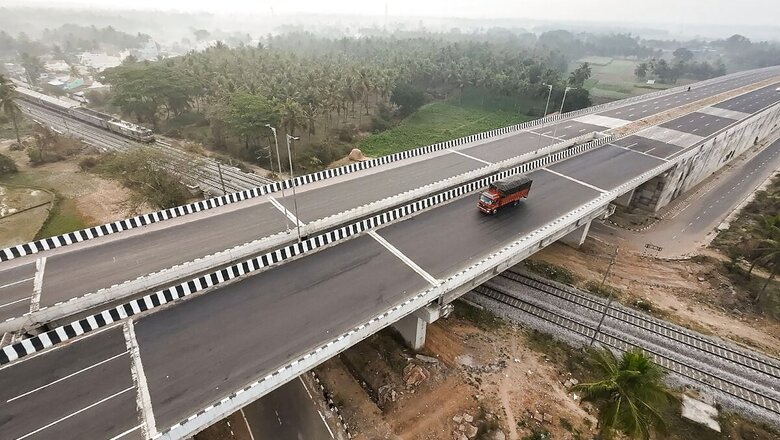
views
Going ahead with the Union government’s ‘Waste to Wealth’ mission and marching towards environmentally sustainable national highways construction, the NHAI is testing the use of steel slag, a by-product of steel making, in road construction.
This initiative by National Highways Authority of India (NHAI) comes days after it announced that it is testing the use of phosphor-gypsum, a by-product of fertilizer production, in road construction on national highways.
According to the Ministry of Road Transport and Highways, this initiative will help address the challenge of shortage of material used in development of the national highways, and could replace natural aggregates such as sand, gravel, or crushed stone with the waste material from the steel industry.
“To construct India’s first Pavement Quality Concrete (PQC) with steel slag, NHAI started trials for its possible use in road construction. The authority permitted Central Road Research Institute (CRRI) to construct a one km long trial patch in Raigarh district for PQC of Panvel-Indapur section of NH 66 near Mumbai where 100% natural aggregates were replaced by steel slag derived aggregates,” the Ministry said, adding that the results from the trial have been encouraging.
Roads constructed by use of steel slag is an example of converting waste into wealth. Use of such material in road construction will make construction more economical and will promote circular economy and resource efficiency.
The NHAI has been encouraging the innovative use of new alternative materials like the use of plastic waste, building and construction waste.
So far, India has seen the use of fly ash and studied the use of waste plastic in road construction on national highways. Use of waste plastic in road construction is being encouraged by the NHAI at the moment. Waste plastic has already been tested very successfully. Studies have established that roads built using plastic waste are durable, sustainable and increase the life of the bitumen. Construction of one kilometre of four-lane highway helps in disposal of approximately seven tonnes of plastic waste, the Ministry said.
Further, the NHAI has also used fly ash — the fine residue of coal combustion in thermal power plants — for construction of highways and flyover embankments. The 135-km long, six-lane Eastern Peripheral Expressway used 1.2 crore cubic meters of fly-ash in its construction.
“NHAI has been encouraging the innovative use of new materials and is focused on reducing the carbon footprint, enhancing durability and making construction more economical,” the Ministry added.
In February, the Ministry said that the NHAI took up field trials for the use of phosphor-gypsum in national highway construction to achieve a circular economy in the use of gypsum.
Read all the Latest India News here




















Comments
0 comment